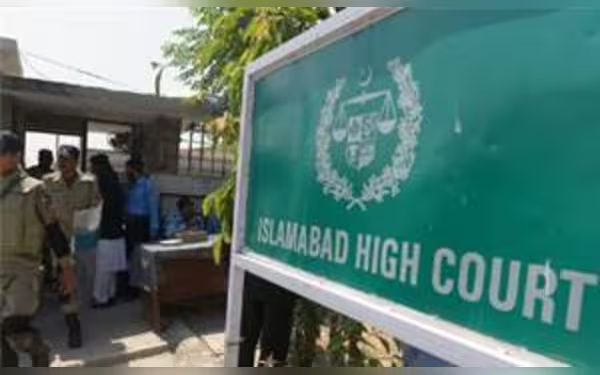Saturday, November 16, 2024 07:25 PM
IHC Bars Government From Taxing Bank Income
- IHC issues restraining order against tax collection on bank income.
- Banks challenge legality of tax rule in Islamabad High Court.
- Court halts coercive actions by tax department on banks.
 Image Credits: nation_pk
Image Credits: nation_pkIHC restrains government from taxing bank income, highlighting legal concerns over tax rules.
The Islamabad High Court (IHC) has recently made a significant ruling regarding the taxation of banks in Pakistan. On Friday, the court issued a restraining order against the government, preventing it from collecting taxes on the income generated by banking institutions. This decision comes in response to various petitions filed by banks, which challenged the legality of a specific tax rule.
The petitions were brought forth by several banks, represented by Advocate Salman Akram Raja. They contested Rule 6C(6A) of the 7th Schedule of the Income Tax Ordinance, 2001. The banks argued that the Tax Department's approach to taxing their income from investments in Federal Government securities was inappropriate. They claimed that the tax rate was being determined based on a ratio of gross advances to deposits, which they believe oversteps the boundaries of a Money Bill and violates Article 73 of the Constitution.
During the court proceedings, the banks' counsel highlighted that the tax imposition was retroactive. This means that the tax was being applied to investments that had not matured during the financial year, which raises concerns about fairness and legality. The counsel further pointed out that this rule conflicts with the State Bank of Pakistan Act, 1956, which grants the State Bank the authority to regulate banking operations and prohibits other authorities from interfering in this domain.
After considering the arguments, the IHC bench directed the Secretary Finance and other relevant parties to submit a report and comments within two weeks. Importantly, the court stated that until the next hearing, “no coercive action will be taken against the petitioners on the basis of any calculation made by the tax department by applying rule 6C(6A) of the 7th Schedule of the Ordinance to its income.” This means that the banks can operate without the immediate threat of tax penalties while the case is being reviewed.
This ruling is crucial not only for the banks involved but also for the broader financial landscape in Pakistan. It underscores the importance of clear regulations and the need for government actions to align with constitutional provisions. As the case progresses, it will be interesting to see how the government responds and whether this will lead to a reevaluation of tax policies affecting the banking sector. The outcome could have lasting implications for how banks operate and are taxed in the future, potentially influencing investor confidence and economic stability in the country.













